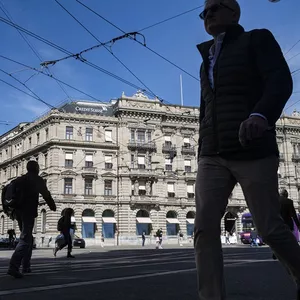Reform UK Leader Claims Local Council First to Ditch Net Zero Commitments
Reform UK leader Nigel Farage has claimed a local council is the first in Britain to officially abandon its net zero policy, framing it as a victory for ‘common sense’ over ‘green extremism’—but critics warn the move sets a dangerous precedent.
In a bold political statement that could reshape local climate policy debates across the UK, Reform UK leader Nigel Farage has announced that a local council—reportedly led by Reform-affiliated councillors—has become the first in Britain to formally abandon its net zero commitments. The move, hailed by Farage as a 'landmark moment for common sense governance', is already drawing national attention and fierce opposition from environmental groups and mainstream political parties. The council in question—believed to be a recently flipped authority in a rural or coastal region—has voted to reverse its prior pledges to reach net zero carbon emissions by 2030 or 2050, depending on the original framework.
Instead, the council says it will pursue a 'pragmatic environmental plan' that prioritizes economic growth, energy affordability, and local autonomy over 'top-down green diktats'. Farage's Statement: Ending 'Eco-Woke' Governance Speaking at a campaign stop in Lincolnshire, Farage declared: > “This is the first council in the country to say ‘no’ to the bankrupt ideology of net zero. It’s not about the planet anymore—it’s about control, costs, and virtue signaling.
We’re taking Britain back to energy realism. ”Farage characterized the council’s decision as a grassroots revolt against what he called “eco-extremism”, adding that more councils under Reform or independent leadership would soon follow suit. What the Policy Reversal Means The specific rollback includes: - Withdrawing from local climate action frameworks tied to national net zero strategies - Ending investments in council-owned renewable infrastructure or fleet electrification - Pausing or cancelling climate education and outreach programs - Reversing planning preferences for low-emission housing or transportationCouncil leaders stated the money saved would be redirected to core services like housing, roads, and waste management, especially in the face of tightening budgets.
Environmental Groups and Political Opponents React The backlash was swift: - Green Party co-leader Carla Denyer called the move "reckless and irresponsible. " - Labour accused Reform of using climate policy as a culture war wedge and warned that scrapping net zero plans would "cost more in the long run. " - Liberal Democrats and climate campaigners like Extinction Rebellion pledged to organize local resistance.
Friends of the Earth UK issued a statement saying: > “Scrapping net zero isn’t just a bad idea—it’s a betrayal of young people and future generations. Local leadership on climate has been crucial where national policy falters. ” Legal and Funding Implications There may be legal and financial consequences.
Some local net zero programs are tied to central government grants, and councils opting out could risk losing funding for infrastructure, transport, and regeneration schemes. The Department for Energy Security and Net Zero has not commented on whether funding will be withheld but noted that local authorities remain ‘key partners’ in achieving national climate targets. The Bigger Picture: Net Zero as a Political Battleground The announcement underscores the growing political polarization around climate policy in the UK.
With Reform UK positioning itself as the anti-net zero party , the issue is becoming a key dividing line between traditional parties that support decarbonization and newer populist movements emphasizing economic costs and national sovereignty. Polling indicates that while a majority of Britons support climate action , concerns about cost-of-living and energy bills are making some voters more skeptical of ambitious timelines and mandates. Conclusion: A Local Rebellion With National Ripples While one council backing out of net zero may seem symbolic, it marks the first formal rupture in what had been a national consensus on local climate action.
Reform UK is betting that economic frustration and anti-establishment sentiment will continue to erode support for green policy. Whether this becomes a broader movement or an isolated headline depends on how other councils—and voters—respond in the months leading up to the general election.
23rd july 2025



